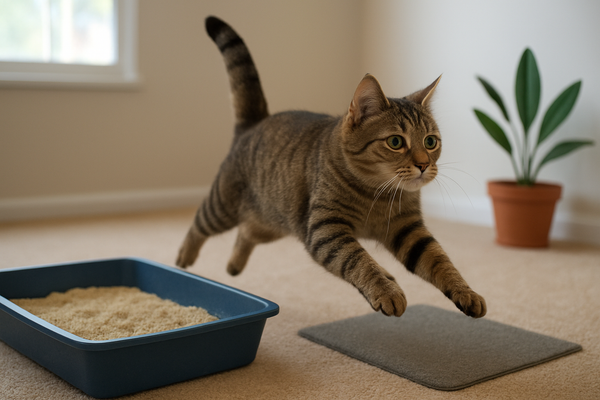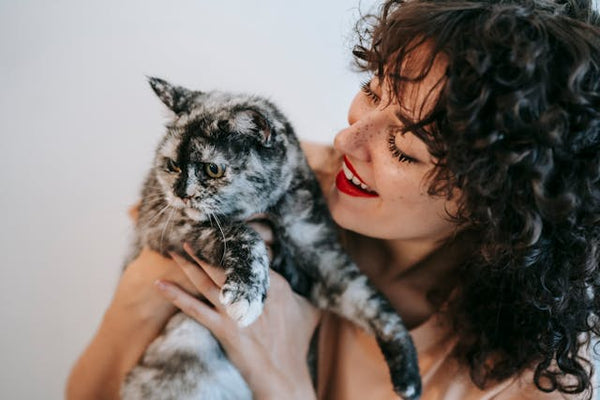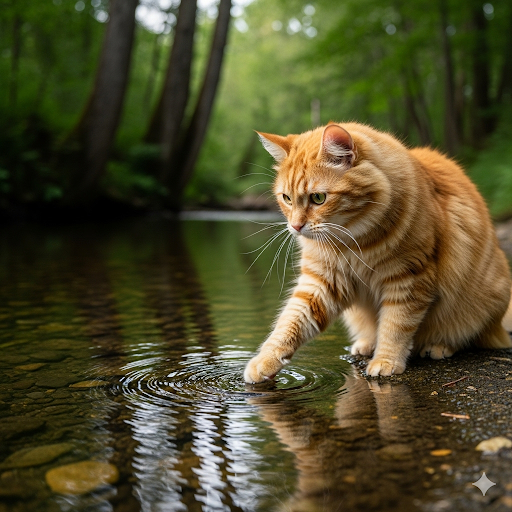
Cats are fascinating creatures with behaviors that often leave us scratching our heads. One such behavior that has intrigued cat owners and enthusiasts alike is the tendency of cats to lick themselves immediately after being touched. This seemingly simple action is layered with meaning and significance. In this blog, we will explore the reasons behind this behavior, delving into the biological, psychological, and social aspects of feline grooming.
The Biology of Grooming
1. The Evolutionary Context
Grooming is a natural behavior for cats, deeply rooted in their evolutionary history. In the wild, cats spend a significant portion of their day grooming. This serves several purposes, including:
- Hygiene: By licking their fur, cats remove dirt, parasites, and loose hair, which helps maintain their overall health and cleanliness.
- Temperature Regulation: Grooming helps cats regulate their body temperature. Saliva evaporates off their fur, cooling them down in warm weather.
- Scent Marking: Cats have scent glands located in various parts of their bodies. Licking helps distribute their scent, marking their territory and signaling to other cats.
Understanding the biological necessity of grooming sets the stage for analyzing why cats might feel the need to lick themselves after human interaction.
2. Grooming and Stress Relief
Cats are highly sensitive creatures, and their environment plays a crucial role in their behavior. When a cat is touched by a human, it may experience a range of emotions, from comfort to anxiety. Licking can serve as a self-soothing mechanism. Here’s how:
- Release of Endorphins: Grooming releases endorphins in cats, which can help alleviate stress and anxiety. After being touched, a cat might lick itself to regain its sense of calm.
- Routine and Familiarity: Cats thrive on routine. If they often groom themselves after being touched, this can become a habitual behavior that provides comfort and familiarity.
The Psychological Aspect
1. Territory and Ownership
Cats are territorial animals, and their grooming habits are closely tied to their perception of territory. When a cat licks itself after being touched, it might be:
- Re-establishing Their Scent: Cats have scent glands all over their bodies, and licking helps them spread their scent. After interaction with a human, they may feel the need to reassert their own scent, especially if they perceive the human as an outsider.
- Marking Territory: The act of grooming can also be a way for cats to assert their territory. By licking themselves, they’re reminding themselves and others that this is their space.
2. Social Interactions
Cats communicate differently than dogs, and their social interactions can be quite nuanced. When a cat licks itself after being petted, it may be:
- Processing the Interaction: Cats can interpret human touch in various ways. Grooming might serve as a way to process and normalize the interaction. It’s their way of saying, “I’m fine; I can handle this.”
- Social Bonding: In multi-cat households, grooming can serve as a bonding activity. A cat licking itself after human interaction might be mimicking behaviors they would exhibit towards their feline companions.
The Social and Environmental Factors
1. Environmental Stressors
Cats are sensitive to their environment, and various stressors can impact their behavior. Factors such as loud noises, new pets, or even changes in routine can cause stress, leading to increased grooming behavior. Here are some potential triggers:
- Changes in the Home: New furniture, renovations, or the arrival of a new family member (human or animal) can make cats feel unsettled. Licking after being touched may be their way of coping with the stress of these changes.
- Human Interaction: Not all cats enjoy being touched. If a cat feels uncomfortable with physical affection, it may lick itself to regain control over its body and space.
2. Human Influence
The relationship between cats and humans can significantly impact their behavior. Our interactions with them shape their responses in various ways:
- Understanding Personal Space: Cats have different thresholds for personal space compared to humans. If we invade that space by petting them, they may feel compelled to lick themselves as a way of reclaiming it.
- Positive Reinforcement: If a cat learns that licking itself after being touched leads to a positive outcome—such as attention, playtime, or treats—it may continue this behavior.
When Grooming Becomes a Concern
While grooming is a natural behavior, excessive licking can indicate underlying health issues or stress. Here are some signs that might warrant a closer look:
1. Over-Grooming
If a cat licks itself excessively, it could lead to bald patches, skin irritation, or even infections. This behavior might be a sign of:
- Allergies: Food or environmental allergies can cause itching and discomfort, leading to increased grooming.
- Anxiety or Stress: Major life changes or ongoing stress can manifest as excessive grooming.
- Medical Issues: Conditions such as skin infections or parasitic infestations may also lead to over-grooming.
2. Behavioral Concerns
If your cat’s grooming behavior changes suddenly, it’s worth consulting a veterinarian. They can help determine if the behavior is a response to stress or an indication of a medical condition.
Conclusion
Cats licking themselves after we touch them is a behavior rooted in biology, psychology, and social dynamics. It serves various functions, from self-soothing to territory marking, and is influenced by the cat’s environment and relationship with its human companions.
Understanding this behavior can enhance our relationship with our feline friends. By being mindful of their cues and respecting their boundaries, we can create a more harmonious environment for both cats and humans. So, the next time you notice your cat licking itself after a pet, remember that it’s more than just a quirky habit; it’s a complex behavior reflecting their instincts, emotions, and interactions with the world around them.



